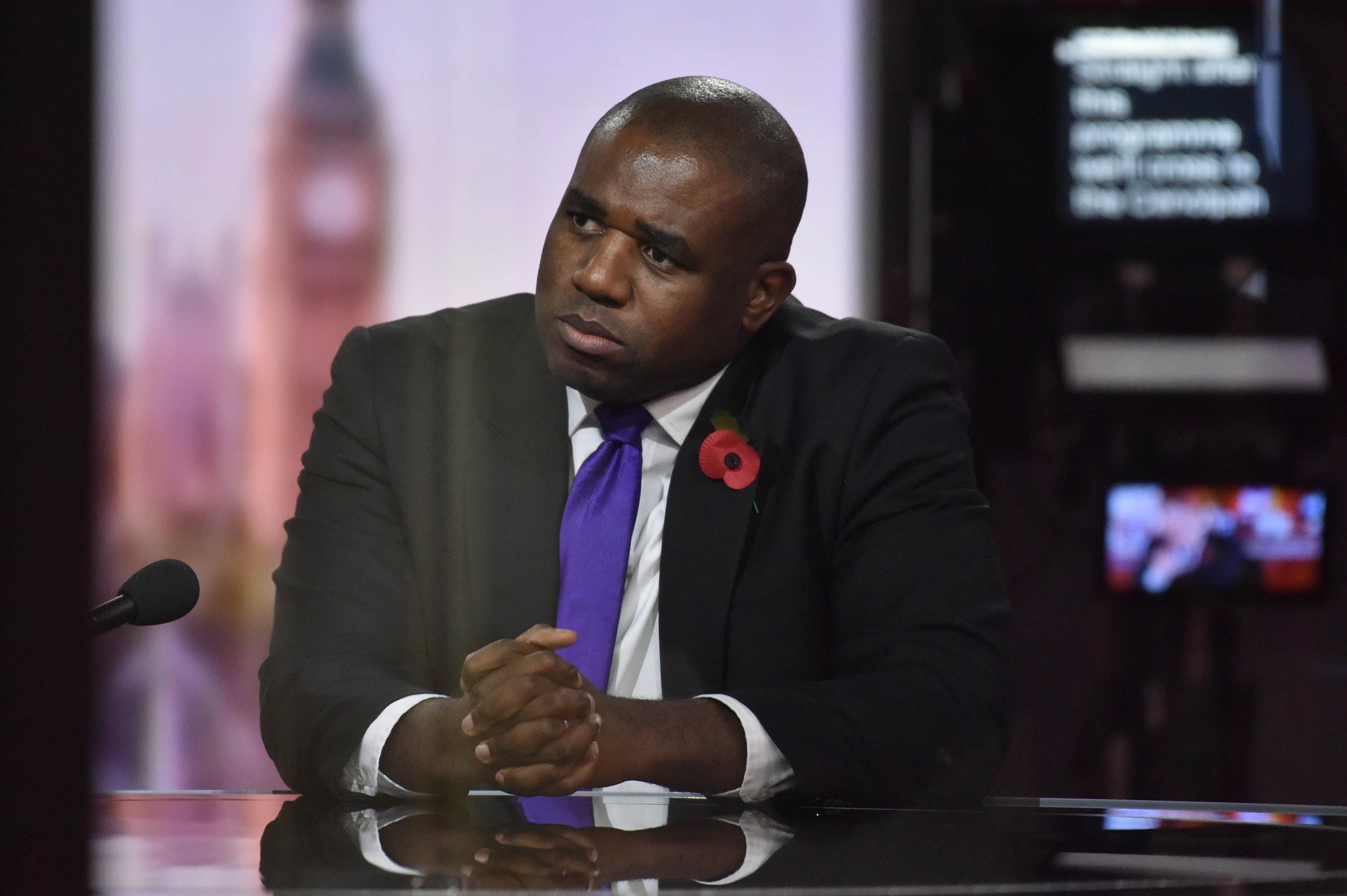Labour to vote against ‘disproportionate’ policing bill curbing right to protest
‘This is no time to be rushing through poorly thought-out measures,’ says Lammy

David Lammy has announced Labour will vote against the government’s new policing bill, claiming it imposes “disproportionate controls” on the right to protest as a leading civil liberties group raised alarm.
It comes as MPs prepare to debate the government’s police, crime, sentencing and courts bill, which contains contentious new powers for officers and the home secretary to impose conditions on public assembly, including the “use of noise”.
Ministers have argued that “recent changes in tactics” used by demonstrators, including gluing themselves to buildings and vehicles or obstructing access to buildings such as Parliament, have “highlighted gaps” in the existing legislation.
But as the government faced a backlash over the plans, Mr Lammy, the shadow justice secretary, said Labour would be whipping its MPs to vote against the bill at second reading in the House of Commons.
“This is no time to be rushing through poorly thought-out measures to impose disproportionate controls on free expression and the right to protest,” he claimed.
“Now is the time to unite the country and put in place long overdue protections for women against unacceptable violence, including action against domestic homicides, rape and street harassment. And we must tackle the misogynistic attitudes that underpin the abuse women face.
“Instead, the Conservatives have brought forward a bill that is seeking to divide the country. It is a mess, which could lead to harsher penalties for damaging a statue than for attacking a woman.”
It comes amid anger from politicians of all stripes at the Metropolitan police response to a vigil for Sarah Everard in south London on Saturday evening, though a Home Office minister argued the new legislation was for “very, very different” scenarios and the “most disruptive protests”.
Campaigning group Liberty, who accused of Priti Patel of “relentlessly” demonising protesters, insisted: “Protest isn’t a gift from the state — it’s our fundamental right.”
Interim director Gracie Bradley said: “Not content with all but banning protest during the pandemic, the government is now using this public health crisis as cover to make emergency measures permanent.
“It’s new policing bill is an all-out assault on our right to protest. It’s those of who are most at risk of having our rights abused who will find we’re even less able to hold the powerful to account”.
Notes alongside the bill outline that the bill will “broaden the range of circumstances in which the police can impose conditions on the use of noise at a public procession… to include where police reasonably believe the noise generated by persons taking part may have a significant detrimental impact on persons in the vicinity or cause a serious disruption to the running of an organisation”.
It will provide powers for the home secretary to “make provisions about he meaning of ‘serious disruption to the life of the community’ or ‘serious disruptions to the activities of an organisation which are carried out in the vicinity” of a protest.
And it will enable ministers to expand the “controlled area” around the Palace of Westminster so that entrances are not blocked by demonstrators.
In a letter to Ms Patel, the Liberal Democrats described the legislation as “plans to crackdown on protests”, urging the home secretary to “think again”.
The party’s home affairs spokesperson Alistair Carmichael said: “The Met got it badly wrong in Clapham. A peaceful vigil highlighting violence against women ended in scenes of mishandled women. How on earth can the government give the police even more powers to clamp down on protests?
“The right to peaceful assembly and protest is a fundamental human right. It is a crucial part of our democratic society. These new laws undermine that right.”
Questioned on the legislation, Home Office minister Victoria Atkins told the BBC’s Andrew Marr that the “most disruptive protests”, which she stressed were “very, very different” from the scenes witness on Clapham Common on Saturday evening, were “very different from what was anticipated by Parliament in 1986” Public Order Act.
Pressed on whether the government was going to take powers to stop protests it doesn’t like happening in a much wider way, she responded: “Most certainly not.
“We absolutely support and recognise the right to peaceful protest. We do have a proud history in this country of protesting and indeed if one looks at some of the protests that unions organise, for example, they can be very, very powerful events.
“But they don’t inhibit day-to-day lives of people in the way some of the protests we’ve seen in recent years have done. I think it’s just trying to get that balance between allowing peaceful protests and allowing members of the public to go out and get on the bus to go to work.”
Subscribe to Independent Premium to bookmark this article
Want to bookmark your favourite articles and stories to read or reference later? Start your Independent Premium subscription today.

Join our commenting forum
Join thought-provoking conversations, follow other Independent readers and see their replies